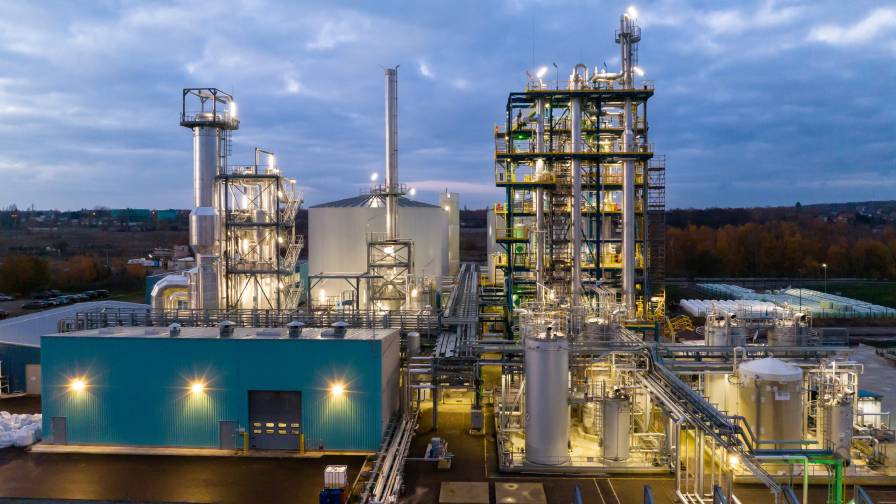France: Biofuel Report
The French government announced an increase in biofuel production quotas and aid for producers, who will receive tax rebates for biofuels sold in the French market. The quota allocation is dominated by biodiesel (as compared to bioethanol), and the acreage planted for biodiesel use is expected to more than double to 1.5 million hectares (Ha) of oilseeds by 2010. Bioethanol production is projected to comprise 300,000 Ha of wheat, 50,000 Ha of maize, and 50,000 Ha of sugarbeets by 2008. Biofuels are entering mainstream French transportation through gas stations and in the development of flex fuel cars, recently approved for trials in the country.
The Government of France (GOF) provides tax relief for a limited quantity of biofuels produced and sold on the French market. To increase biofuel utilization in fossil fuels from roughly 1 % in 2005 to 10% by 2015 (in net calorific value), the government will increase the biofuel production limits eligible for tax incentives. As an additional incentive measure, the government imposes an environmental tax (taxe generale sur les activites polluantes, or TGAP) on fuel distributors who don’t meet a biofuel incorporation rate of 1.75% in 2006, 3.5% in 2007, 3.5% in 2008, 6.25% in 2009, and 7% in 2010.
Growing transportation needs are driving the demand for biodiesel. In 2006, 55% of the EU transportation market needs were filled by diesel, and this proportion is expected to rise; in France, diesel represented 73% of total gas consumption versus 27% for gasoline. To meet the 2006 utilization goal of 1.75%, France will have to increase its consumption to 630,000 MT of biodiesel.
Most biodiesel produced in France is comprised of canola and sunflower seed methyl ester produced by the French company Diester Industrie (DI). In order to meet the 2010 biodiesel production quotas, DI plans to augment its production capacity through expansion and new construction.
Impact On Crops
Even though biodiesel can be produced using vegetable or animal oil, to date, all biodiesel produced in France is from Vegetable Oil Methyl Ester (VOME), mainly from canola. canola methyl ester accounts for 80% of the biodiesel production, followed by sunflower seed methyl ester (10%), soybean oil (5%), and palm oil (2%).
Future trends in biodiesel production could include a strong growth trend for canola oil methyl ester, increased sunflower oil methyl ester production from oleic varieties, further development of animal oil ethyl ester from animal fat, and additional blends including imported soybean oil and palm oil. The French oilseed industry (PROLEA) forecasts that to reach the the 2010 production goals, France will need 1.5 million hectares planted to non-food oilseeds, including 1.25 million hectares of canola and 330,000 hectares of sunflower seed.
The bioethanol market in France is smaller, but growing. Bioethanol can be produced from sugarbeets, wheat, and maize. The companies currently producing bioethanol in France are Tate & Lyle (from wheat), BCE (from wheat), and BENP (from wheat). The following companies have recently been approved by the French Government to produce bioethanol in the future: BENP in Lillebonne (from wheat), Cristanol in Bazancourt (from sugarbeets and wheat), AB Bioenergy in Lacq (from maize), Roquette in Bernheim (from wheat), Tereos (from wheat) in Lillebonne and Soufflet in Le Meriot (from wheat). The Lillebonne plant will open in April 2007 and, when fully operational, will use 545,000 MT of the 2007 wheat crop.
In 2006, the French Government authorized flex fuel cars (able to consume up to 85% bioethanol) in France for experimentation. The regional council of the Marne regional district (Champaign region, East of Paris) launched an experiment in June 2006. Seven flex fuel cars manufactured by Ford will be tested over three years. Several flex-fuel cars from French and foreign manufacturers were displayed for the first time at the international motor show in October 2006 in Paris, and although they are not available to the public yet, they received wide media coverage.
Until 2005, bioethanol in France was produced primarily from sugarbeets and secondarily from wheat; most bioethanol production is likely to be derived from wheat in 2008, at the expense of sugarbeets. According to the French Ministry of Agriculture, 300,000 hectares of wheat, 50,000 hectares of maize, and 50,000 hectares of sugarbeets are expected to produce bioethanol by 2008. For wheat and maize, this will represent less than 5% of the total grain acreage.





